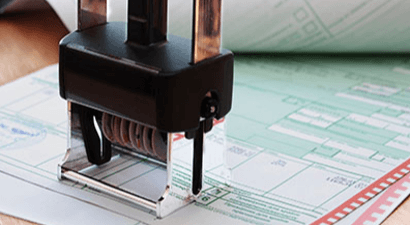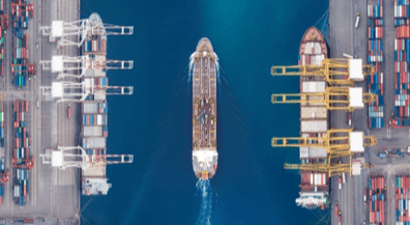Border Management Authority Act 2 of 2020
There have been rumblings within the industry for years regarding the establishment of a Border Management Authority (“the Authority”). These rumblings were quietened, as the 16 July 2020 saw the President assent to the Border Management Authority Act 2 of 2020 (“BMAA”). The commencement date of the BMAA will be set by Presidential proclamation. According to the preamble of the BMAA, it recognizes that border management is the responsibility of multiple organs of state and that there is a need for integrated and coordinated border management. The preamble acknowledges that the “circumstances of modern travel and trade require a single Authority to be responsible for ports of entry and the control of borders”. The BMAA introduces some new terms like:
- ‘border law enforcement area’ which, in respect of land borders is a distance of 10km or a reasonable distance inside the internationally recognized borders of the Republic; and in respect of sea borders, is a distance of 10km or any reasonable distance of the landward side of the baselines extending seaward to the outer limit of the Exclusive Economic Zone.
- ‘Customs related functions’ being the functions performed exclusively by SARS under the Customs & Excise Act 91 of 1964, and any tax Act referred to in the Tax Administration Act 28 of 2011.
- ‘Border Guard’ comprising of officers, and commissioned officers. An officer of the border guard is deemed a peace officer[1] with all the accompanying rights.
According to section 2, the BMAA applies outside the territory of the Republic in accordance with any international agreement South Africa has signed. The BMAA does not however apply to customs related functions (definition contained above). Despite the contention that the BMAA does not apply to customs related functions, it is difficult to see how the Authority will manage the borders without there being some cross over with customs related functions, especially since, according to section 5, the functions of the Authority include the facilitation and management of the movement of goods within the border law enforcement area and an ports of entry. Chapter 6 of the BMAA relates to the Authorities powers of entry, search, seizure, arrest, and detention. Officers may with or without a warrant perform any of the following:
- Enter any premises;
- Search any person, goods, premises or vehicle;
- Inspect goods, documents premises or vehicles;
- Seize anything that may lawfully be seized; and
- Arrest or detain a person.[2]
A warrant is not needed for an officer to conduct a routine search and seizure of any person goods, documents, premises or vehicle within the border law enforcement area or port of entry. The officer may also detain or arrest any person reasonably suspected of contravening any provision of the BMAA.[3] The case law and LAWSA make it clear that the test for “reasonable suspicion” is objective and not subjective. In other words, the officer will not only need to prove the reasonable suspicion, but also the facts which gave rise to such suspicion. Officers may stop and board any vessel within the border law enforcement area without a warrant and require the master to produce certain documents, including documents relating to the importation and exportation of goods.[4] It is clear that the BMAA grants its officers extremely wide powers. It is however questionable as to whether or not the scope of these powers would withstand constitutional scrutiny. The Constitutional Court considered a similar issue in the Gaertner[5] case, where it confirmed the Western Cape High Courts declaration of certain subsections of section 4 of the Customs & Excise Act 91 of 1964 (“C&E Act”) relating to the power to enter a premises invalid. The BMAA provides for the creation of an Inter-Ministerial Consultative Committee (“IMCC”) headed up by the Minister of Home Affairs and which will include the Cabinet members responsible for:
- Agriculture, Forestry and Fisheries;
- Defence and Military Veterans;
- Environmental Affairs;
- Finance;
- Health;
- Police;
- State Security;
- Trade and Industry;
- Transport; and
- Any Cabinet member appointed by the President.
Given that purpose of the IMCC is, inter alia, to consult on any proposed amendment to any legislation affecting border management and the designation, determination, appointment, prescription and withdrawal or cancellation of ports of entry,[6] it is interesting to note that the Commissioner for SARS is not a member of the IMCC. The BMAA also makes provision for a Border Technical Committee and an Advisory Committee both of which will fulfil and advisory role.[7] It is hoped that the Commissioner for SARS will be a member of the Border Technical Committee. In terms of section 34 of the BMAA, officials, the Authority, Minister and the Commissioner may not be held liable for any loss or damages caused by the exercise (or failure to exercise) of any power or the performance of any duty in terms of the BMAA, unless the conduct is unlawful and is committed negligently or intentionally. Offences range from demanding offering an officer a bribe to intentionally giving an officer false or misleading information. The sanctions which may be imposed, depending on the offence, could be a fine or imprisonment not exceeding 10 years or both. With our borders already monitored by the police, as well as Customs, amongst other government agencies, introducing another border monitoring agency could lead to conflicting directions between such agencies. Does a BMAA stop trump a police or customs stop, or will the various governmental agencies monitoring our borders co-ordinate their stops? Also, where there are now multiple stops or interventions, the cost consequence of delays could go up significantly. This is cause for concern where such interventions have already pushed up the cost of imports and exports. Once again, we have a legislation that is far reaching and draconian in nature. While there is a need for border management, the administration and enforcement of the Act is subject to Constitutional principles, including section 33 which provides that
“Everyone has the right to administrative action that is lawful, reasonable and procedurally fair".
[1] Section 15.
[2] Section 18.
[3] Section 19.
[4] Section 20.
[5]Gaertner and Others v Minister of Finance and Others (CCT 56/13) [2013] ZACC 38; 2014 (1) SA 442 (CC); 2014 (1) BCLR 38 (CC) (14 November 2013).
[6] Section 24.
[7] Sections 25 and 26.





